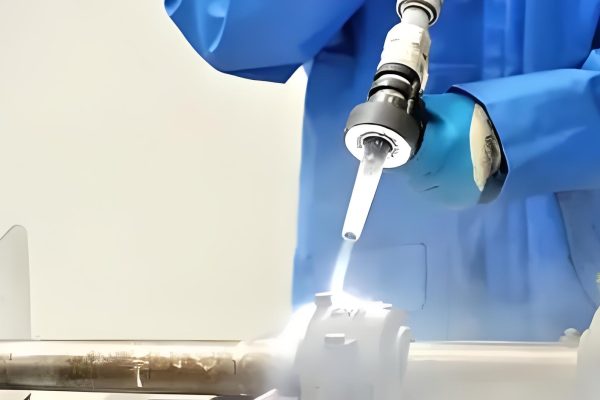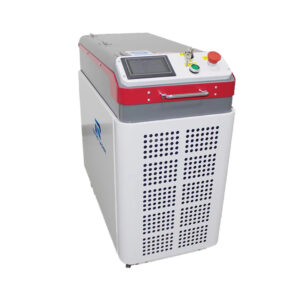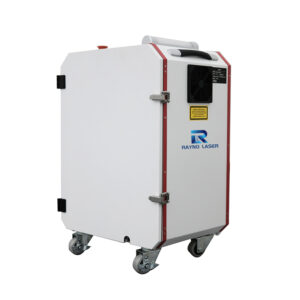What Are the Real Problems Customers Face with Dry Ice Cleaning?
Outline
- Introduction
- Importance of mold cleaning in manufacturing
- Why dry ice cleaning became popular
- The need for a better solution
- What Problems Do Customers Face When Using Dry Ice for Mold Cleaning?
- Incomplete cleaning
- High operating costs
- Risk of surface fatigue
- Handling and storage of dry ice
- How Does Laser Cleaning Solve These Issues?
- Non-contact, precise cleaning
- No consumables, lower long-term cost
- Eco-friendly with no secondary waste
- Better control over cleaning depth and area
- What Is the Difference Between Gaussian Beam and Flat-Top Beam in Laser Cleaning?
- Characteristics of Gaussian beams
- Characteristics of Flat-Top beams
- Which beam type is better for mold cleaning?
- Why Laser Cleaning with the Right Beam Profile is the Future of Mold Maintenance
Introduction: Why Look for a Better Way to Clean Molds?
In industries like automotive, electronics, and packaging, mold cleaning is essential to maintaining product quality and production efficiency. Dry ice cleaning has been a popular method due to its non-abrasive nature and chemical-free process. However, as production demands increase and precision becomes more critical, the limitations of dry ice cleaning are becoming more apparent.
Is there a better way? Laser cleaning technology, with advancements like high-power fiber lasers and customizable beam profiles, is offering a superior solution.
What Problems Do Customers Face When Using Dry Ice for Mold Cleaning?
Although dry ice cleaning initially seems ideal, many real-world issues arise in daily production:
Incomplete Cleaning
Dry ice cleaning can remove surface dirt and light contaminants, but it often struggles with:
- Deep-seated residues
- Burnt-on polymers
- Hardened coatings
Especially for precision molds, any residue left behind can lead to defective products.
High Operating Costs
Dry ice itself is consumable and must be replenished regularly. In addition:
- Special storage is needed (cryogenic temperatures)
- Logistics and handling add costs
- Equipment maintenance (nozzles, compressors) is frequent
For factories running continuous shifts, these costs add up quickly.
Risk of Surface Fatigue
Repeated cold blasting can lead to:
- Microcracks on mold surfaces
- Premature wear and tear
- Loss of mold precision over time
This hidden damage increases long-term costs.
Complex Handling and Safety Concerns
Dry ice is a hazardous material:
- Operators must wear protective gear
- CO₂ accumulation can create suffocation risks in confined spaces
- Transport and storage involve strict regulations
These factors complicate daily operations.
How Does Laser Cleaning Solve These Issues?
Laser cleaning addresses dry ice’s shortcomings in several critical ways:
1. Complete, Precise Cleaning
Laser beams can be focused with pinpoint accuracy, allowing them to:
- Remove stubborn residues
- Clean even the finest mold details
- Adjust energy levels to match different contamination layers
Result: Consistent, thorough cleaning without damaging the mold surface.
2. No Consumables, Lower Long-Term Costs
Once installed, a laser cleaning machine:
- Requires only electricity
- Has minimal maintenance needs (mainly optics)
- Eliminates consumables like dry ice pellets
Long-term operational savings are significant.
3. Surface-Friendly, Non-Abrasive Process
Laser cleaning is non-contact:
- No mechanical stress
- No surface microcracks
- Preserves the precision and life of expensive molds
Especially important for industries requiring high-tolerance components.
4. Safer and More Environmentally Friendly
Laser cleaning:
- Produces no secondary waste
- No need for chemical or gas handling
- Reduces worker exposure to hazardous materials
Laser technology supports modern factories’ push toward green, sustainable production.
What Is the Difference Between Gaussian Beam and Flat-Top Beam in Laser Cleaning?
Mold cleaning mostly request Pulse laser, and it the Laser beams come in different energy distribution patterns, and choosing the right one dramatically affects cleaning results.
Gaussian Beam
- Energy peaks at the center, gradually decreasing toward the edges
- Ideal for small-area, focused cleaning
- Good for applications needing fine detail work
However, in mold cleaning, this can lead to:
- Overcleaning (hot spots) in the center
- Uneven surface results
Flat-Top Beam (Flat Energy Distribution)
- Energy is evenly distributed across the entire spot size
- Uniform cleaning effect across the entire treated area
- No hot spots or overheating risks
Flat-top beams are better suited for large mold surfaces, ensuring:
- Even contaminant removal
- Consistent quality without localized damage
- Improved cleaning efficiency
Why Laser Cleaning with the Right Beam Profile Is the Future of Mold Maintenance
Dry ice cleaning was once considered a modern solution, but its limitations are now a bottleneck for high-precision industries. As manufacturing technology advances, cleaning methods must evolve too.
Laser cleaning offers:
- Complete, non-damaging cleaning
- Cost savings with no consumables
- Safer, greener operations
- Precision-tuned results depending on beam type
By selecting the right laser system—whether to choosing between a Gaussian or Flat-Top beam, manufacturers can significantly improve mold lifespan, product quality, and operational efficiency.
Laser cleaning is not just a better alternative—it’s the future.
👉 Interested in learning more about our professional mold cleaning laser solutions? Contact us today!




